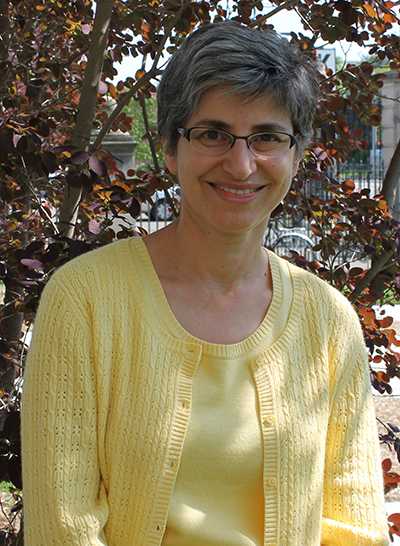Federal government picks Wayne State to train social workers, nurses in substance abuse screening


The federal government has given Wayne State University nearly $1 million to train social work and nursing students to assess patients in primary care settings for substance abuse behaviors.
Feleta Wilson (above, left), associate professor and Fulbright Scholar in the College of Nursing, and Anwar Najor-Durack (above, right), director of field education for the Wayne State School of Social Work, were awarded a three-year, $945,000 grant from the U.S. Substance Abuse and Mental Health Services Administration (SAMHSA) to train 100 undergraduate and graduate students each year in Screening, Brief Intervention, and Referral to Treatment (SBIRT). The students will apply this training in direct practice with patients in health care settings throughout Southeast Michigan under the supervision of clinicians who will also be trained in SBIRT under the program. An additional 25 community-based health care providers, including physicians, will be trained over the grant period.
Wayne State is the first university in the state of Michigan to receive a SAMHSA grant for training students in SBIRT, which is an integrated, public health approach to delivering early intervention and treatment services for persons with - or at risk of developing - substance use disorders. SBIRT is designed for use in primary care centers, hospital emergency rooms, trauma centers and other community settings that are a person's first, and sometimes only, contact with the health care system. DMC Sinai-Grace Hospital, Detroit Recovery Project, and the National Council on Alcoholism and Drug Dependence-Greater Detroit Area are among the area health care providers that have agreed to supervise students in the SBIRT program.
Wilson, who is principal investigator of the project, and Najor-Durack will design and implement the SBIRT program with an interprofessional team that includes Associate Professor Antonio González-Prendes and Assistant Professor Suzanne Brown, both with the School of Social Work, and Nursing's Umeika Stephens, assistant professor, and Cynthera McNeill, clinical instructor. According to Najor-Durack, training social workers and nurses in SBIRT makes sense because they typically spend the most time with patients, overseeing intakes, discharges and referrals. They also share a more holistic approach to assessing patients.
"Social workers and nurses consider how physical, behavioral and environmental circumstances come together to influence health and well-being and can direct patients toward community-based resources to improve their outcomes," said Najor-Durack. "Traditionally, health care services are delivered in silos such that linkages aren't made between the symptoms patients present with and seemingly nonrelated behaviors, such as substance abuse. This is all changing with the Affordable Care Act and its expectation that allied health professionals will work together to ensure quality and coordination of patient care."
Najor-Durack and Wilson note that SBIRT is one of several interdisciplinary education initiatives Wayne State offers its allied health students, including the university's Interdisciplinary Older Adult Home Visit Program, in which social work and nursing students join those from medicine, pharmacy, and health sciences on house calls throughout Metro Detroit to interview and assist seniors. The School of Social Work offers dual-title degrees in social work and gerontology and social work and infant mental health, hosts an interdisciplinary suicide research group, and offers a graduate Certificate in Alcohol and Drug Abuse Studies incorporating biological, psychological, social, cultural and public health perspectives. Nursing created the C2 Pipeline, a college and career readiness program that brings together allied health faculty, including those from social work, to offer an immersion experience for college-bound high school students each summer, and is a partner in the Stomping Out High School Step Show Competition and Resource Fair, an annual program of S.A.V.E T.H.E.M. (Stomping Away Various Epidemics by Teaching Health Education and Mentoring) under McNeil's direction.
According to Wilson, SBIRT training will be particularly attractive to public health nurses, psychiatric nurse practitioners and adult nurses. She said health care providers often are more successful than family members and friends in helping people address their substance abuse behaviors because of the confidential, nonjudgmental environment they provide. Wilson said Wayne State's SBIRT grant is expected to have long-term regional benefits because the university's graduates tend to stay in Southeast Michigan.
"Our social workers and nurses return to their communities to practice, so they will keep this skill set concentrated in Metropolitan Detroit for the benefit of its residents," Wilson said. "We are designing this as a train-the-trainer program and fully expect participants to teach SBIRT to their colleagues. So the clinical impacts will be great."
Wilson said the School of Social Work's Office of Continuing Education and Professional Development will also offer SBIRT workshops for allied health professionals over the next three years.
Wayne State University is a premier urban research institution offering more than 380 academic programs through 13 schools and colleges to nearly 28,000 students.